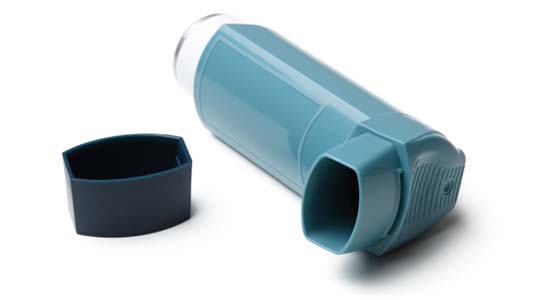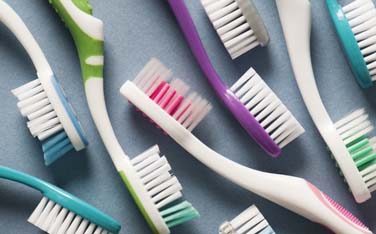Got asthma? This chronic lung condition can leave you wheezing, making it hard to breathe. But you may not realize that asthma is more than a respiratory condition. It can also put you at risk for dental problems.
How asthma affects your dental health
Did you know...?
One in 13 people has asthma, according to the Centers for Disease Control and Prevention.
What oral health risks are linked to asthma?
Dry mouth. When you have asthma, you’re more likely to breathe through your mouth to get air. This can reduce saliva, drying out your mouth and increasing your risk of cavities. What’s more, some asthma medications may actually cause dry mouth.
Bad breath. Foul-smelling bacteria in your mouth quickly multiply when your mouth dries out.
Tooth decay. Chronic dry mouth lets plaque build up. This makes cavities more likely to develop.
Gum disease. The growth of plaque on your teeth can inflame your gums, causing them to recede. Left untreated, this condition can develop into gum disease.
Mouth sores. Using an inhaler can irritate the back of the mouth, causing lesions and sores.
How can you protect your mouth?
Follow these steps to counteract the dental risks associated with asthma.
• Drink water. Stay hydrated to prevent dry mouth.
• Chew gum. Pop in a stick of sugar-free gum to keep your mouth refreshed.
• Brush and floss regularly. Follow a proper oral health regimen to lower your chance of cavities.
• Prevent asthma attacks. Understand your asthma triggers, and then adjust your lifestyle to limit contact with these triggers. For example, you may want to use an air purifier at home or only exercise indoors. And always keep your inhaler handy!
Finally, don’t forget to discuss your asthma with your dentist. Mention any medications you’re taking. With regular exams and cleanings, your dentist can keep an eye on your teeth to prevent tooth decay and gum disease from sneaking up on you.
Do you make these common dental mistakes?
Discover how to protect your smile.
Even your teeth hate your snoring
Learn how to protect your mouth from the effects of snoring.
Cavity prone?
Your genes could be increasing your risk for cavities.










